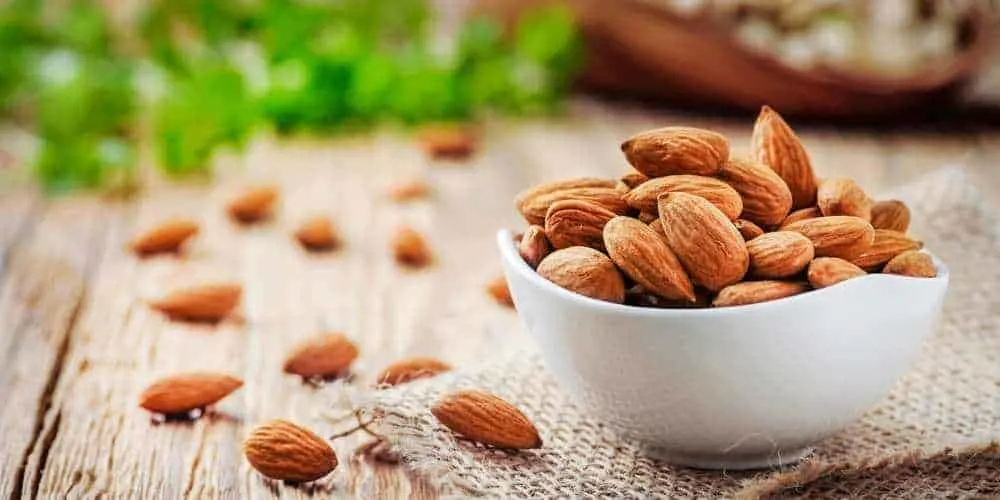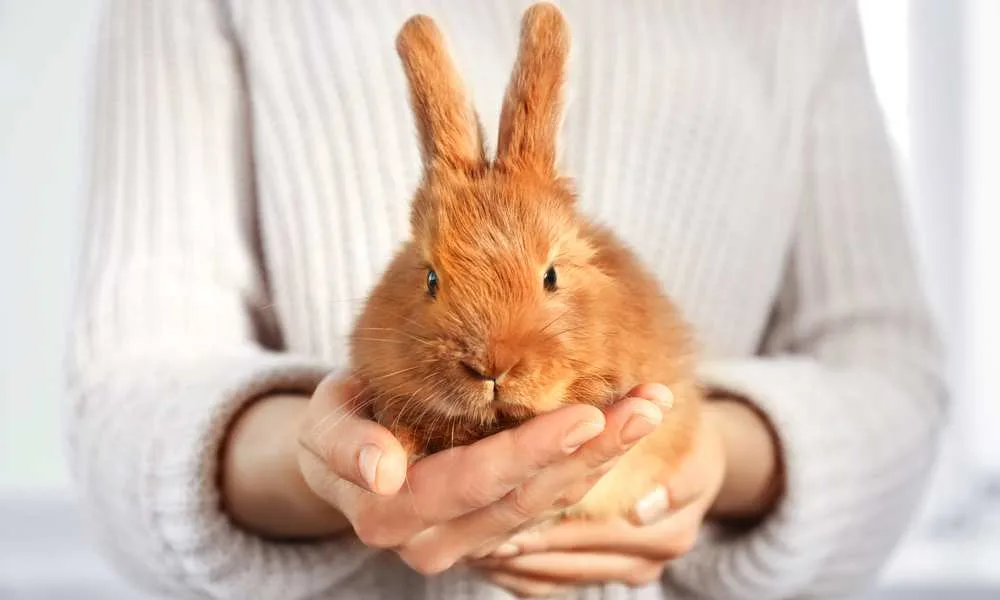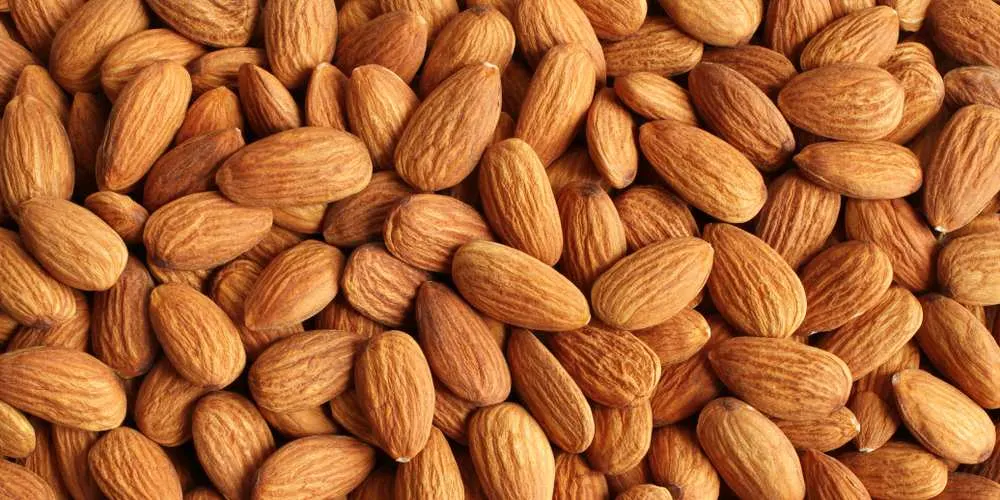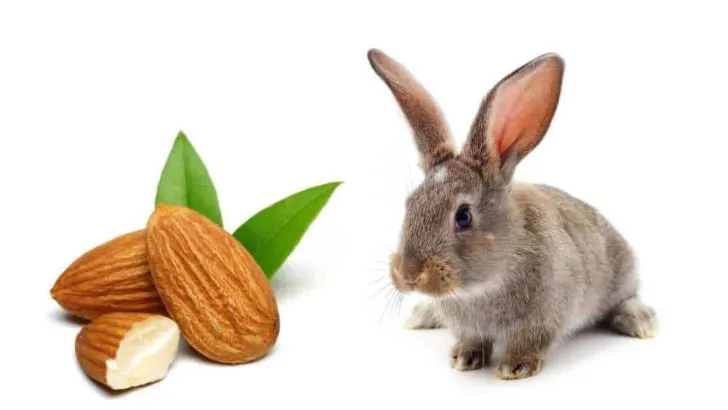If you are reading this, you must have a cute rabbit pet, and you are worried about its nutrition. Can your rabbit consume almonds? Or is this something you should avoid?
Almonds are widespread and nutritious tree nuts I’m sure we are all familiar with. We like to consume them as snacks sometimes, but what about our pets? Does this nutritional value suit them as well? I would have to say that it depends on the food.
So, the question would be: can rabbits eat almonds? Sorry to disappoint you, but feeding your rabbit almonds is not the smartest thing you can do.
If you would like to learn a bit more about almonds, the effects this nut has on your pet rabbit, and what you should do if it eats some of it, don’t go anywhere! We’ve got all the information you need.

Can Rabbits Eat Almonds? The Toxic Treat
The fact that nuts are one of the most nutritious foods is indisputable. However, this is only true for humans for now. Regardless of nutritional value, almonds are not well accepted with most animals.
Rabbits are one of them. Although a rabbit can swallow and eat almonds, it does not mean it should. A cautious owner should not give almonds to his pet rabbit on his own.
However, just saying that something is “not good for your rabbit” is not enough. There are people who will dismiss this statement only as an untested theory and continue on their own.
Precisely because of this, I feel obligated to list all the side effects that can occur in your rabbit in case it eats a couple of almonds (with or without your permission).
So, let’s start with some general order.
Digestive Problems
The most common problems that can be associated with toxic food are related to digestion. As one of the vital functions of the organism, digestive problems can cause you a lot of trouble.
Digestive problems are most often reflected in diarrhea, bloating, constipation, etc. According to some degree of seriousness, the mildest side effect here is bloating. However, when it comes to diarrhea – it’s time to see a vet.
Digestive problems are solved more or less in a similar way. This mainly includes increased hydration, changing the diet, and in severe cases, the inclusion of prescribed medications or fluids.
Weight Gain
It is very important to understand from the start that weight gain does not have to come only from dough and sweets. Smaller animals, such as rabbits, in this case, need very little to gain weight.
Therefore, one should be very careful when choosing food. Almonds consist of an incredible 163 calories, which in larger quantities is too much for us, let alone for one rabbit.
Once they gain weight, losing unnecessary pounds and getting your rabbit back to an average weight can be more challenging than you thought. However, this is the smallest problem that can befall you.
Obese rabbits face many more problems and have a higher risk of heart disease. If the rabbit is old, it is even threatened with immediate heart failure.
Kidney Stones
As we move on, we come to some severe consequences almonds can cause in your rabbit. One of them is kidney stones. If you thought this was only present in humans – you are mistaken!
Kidney stones are very common in animals and, in most cases, occur due to inadequate nutrition. Often, owners feed their pets food that deprives them of vitamins thinking they are feeding them to the best standards.
Almonds are rich in oxalate – a substance that disrupts the level of calcium in your rabbit’s body. To be more precise, oxalate actually prevents the absorption of calcium and creates calcium buildup – which is devastating and unacceptable for your rabbit’s stomach.
Nut Allergy
Since we are talking about nuts, most of these nutrients are very strong, so they can cause strong reactions in animals with weaker immunity.
Currently, we are talking about allergic reactions. The most common reactions include mouth rash, skin irritations, swelling, itching. If you ignore these symptoms, this can be life-threatening to your rabbit.
Allergic reactions are resolved by going to regular veterinary checkups. Such reactions should be taken very seriously as if they were any other disease.
Choking
One of the very serious substances contained in almonds is hydrocyanic acid, otherwise known as cyanide.
The thing with this is that cyanide contributes to the taste being stronger – salty and bitter. Naturally, rabbits are not accustomed to strong foods, especially not bitter ones.
Thus, excess intake of almonds can cause choking, coughing, and even poisoning (given the strength of cyanide).
Blood Clotting
Almonds contain huge amounts of vitamin E. Now, whether it’s good or bad depends on how you look and who it concerns. When it comes to your pet rabbit, vitamin E in large amounts can be dangerous. Excess amounts cause nausea, tired feeling, and rash.
However, if you cross the line with this, it can affect blood clotting. This can cause clotting of blood vessels and directly result in heart attacks. Also, foods rich in this vitamin, as a rule, should not be consumed every day precisely because of its strength.
Almonds, although they are small nuts, intake daily can be harmful to the rabbit’s body. This can cause various disorders of weight, digestion, and even the nervous system.
Ultimately, it can also lead to food poisoning. And that is definitely the last thing on your list.
So let’s slowly conclude the topic: how harmful are almonds to your rabbit?
You see, as far as the possibility is concerned, your rabbit is able to eat and swallow this food, and at first glance, it will not seem so dangerous. One should know that problems arise after consuming.
If you have a domestic rabbit in your household, the likelihood that the rabbit alone will stumble upon almonds is small, so most of the responsibility falls on you.
It’s up to you not to let the rabbit eat your almonds – otherwise, anything from the list above can occur.
Read also: Can Rabbits Eat Walnuts?

Nutritional Requirements
When you have a rabbit as a pet, you should pay close attention to its diet and to the amount they are allowed to consume. Here’s what the rabbit’s nutritional requirements are:
- Carbohydrates – for regular digestion
- Proteins – maintaining healthy skin, fur, muscle strength
- Vitamins – improving the immune system, eye health
- Minerals – essential for balance in the diet
- Fats – maintaining the average weight
- Water – proper hydration

Healthy Alternatives
Now that we know what nutritional values are, it would be good to give some concrete examples. Of course, this will only have positive effects if you give them to your rabbit in acceptable amounts.
1. Carrots Leaves
According to some stereotypes, the mass opinion is that rabbits prefer to eat carrots alone. Well, it’s time to break this belief and find out what is actually the healthiest – carrot leaves!
If you wash well and properly serve this to your rabbit, you have chosen the best possible meal. Carrot leaves contribute to boosting the immune system, detoxification, and support regular digestion.
2. Cauliflower
If cauliflower is found in your garden, be sure to use it in your rabbit’s meals. This vegetable is a natural source of hydration in your rabbit’s diet and contributes significantly to refreshment.
However, do not overdo it by including this in their dietary plan. Large amounts can affect bladder and bowel movements.
3. Berries
It is essential to know that greens are not the only type of food that can be found in your rabbit’s diet. If you listen carefully and consult a veterinarian, you will find out that some fruits should be included as well.
In this case, the perfect example is berries. For example, raspberries are very healthy for your little pet. In order to serve them properly, you need to wash them, remove the seeds, mash them and place them in your rabbit’s food bowl.
4. Grapes
Another fruit that you must have in your yard is grapes. This fruit is rich in vitamins C and K. However, one should be careful when it comes to the frequency of consumption. Regardless of the nutritional value, you should not overdo it by serving your rabbit grapes every other day.
You can give the grapes to your rabbit 1 or 2 times a week, and only after you wash them well, take out the seeds and mash them – like berries.
Learn More: What Can Rabbits Eat? The Entire Diet For Your Rabbit

